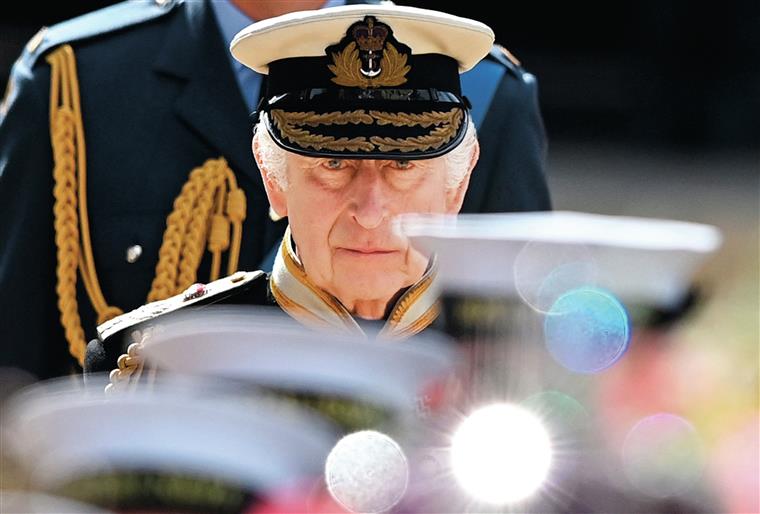It may be one of the first things we ask ourselves when a king dies: What will his fortune be? Or: How many zeros will appear on the bank statement? Or even: What is the value of all the goods you have purchased?
Queen Elizabeth II died earlier this month, at the age of 96, and according to the British newspaper The Sunday Times, she had a personal fortune estimated this year at 370 million pounds, or about 427 million euros, «more than five million compared to 2021. Therefore, King Charles III (his successor) inherited from his mother not only the throne of the United Kingdom, but also personal wealth, which he would “receive without payment of inheritance tax, in a privilege reserved for royal dispatches.” Most of this wealth would pass to Charles without the government receiving British pound.
From Sovereign to Sovereign
According to CNN, in the UK, the inheritance of assets worth 325,000 pounds, or 373,000 euros, is subject to an inheritance tax of 40%. However, Carlos III will not have to hand that sum over to the kingdom’s finances, thanks to rules adopted in 1993 – which grant exceptional treatment to the crown prince when he receives the former king’s personal assets. Under these rules, assets that pass from the sovereign, or from the sovereign’s consort, to the next monarch are “exempt from inheritance tax.” Moreover, the rules set out in the 2013 government memorandum of understanding also ensure that “the king has his own money and, therefore, his financial independence from the state.”
Charles’ fortune includes assets such as Balmoral Castle in Scotland (where Elizabeth II died and which is the summer destination of the British royal family); The Sandringham residence in England became the private property of the British monarch, and is known as the place where the family usually celebrates the year. In addition, Isabel II had a large portfolio of shares and a collection of royal stamps estimated at 100 million pounds, or about 115 million euros, according to The Times last year. The famous British crown jewels, which are estimated to be worth three billion pounds (about 3.5 million euros), automatically passed to his successor.
Charles III also inherited the Duchy of Lancaster – a royal estate since the Middle Ages – which brought in £24m, about €27m, from the British monarch’s private income in the last financial year. The Duchy of Lancaster has amassed the private heritage of British royalty for six centuries. According to El País, its main objective is to provide the monarchs with a source of income independent of sovereign support, the budget line provided by the state for their official functions. Despite this, with his accession to the throne, Charles lost the Duchy of Cornwall which belongs to the eldest son of the British monarch and which brings in about 21 million pounds, which is about 24 million euros a year.
Added to all this is Carlos’s private fortune, estimated at about $100 million.
According to CNN, Carlos will also receive an annual “sovereign subsidy” from the British Treasury, set at 15 percent of income from Crown assets and which in 2021-2022 amounted to about 100 million euros, with an additional tranche of more than 34 million pounds, about 40 million euros, to renovate Buckingham Palace in London. This Sovereign Grant is used to “finance expenses related to the official representation of the Head of State or members of his family,” including staff salaries, maintenance and cleaning of palaces, official travel, and receptions.
In addition, it will also own the Crown Estate portfolio – one of the largest real estate empires in Europe – which includes commercial properties, including properties in prime locations in central London, rural and coastal lands across the country and even waters around England. .

“Wannabe internet buff. Future teen idol. Hardcore zombie guru. Gamer. Avid creator. Entrepreneur. Bacon ninja.”

